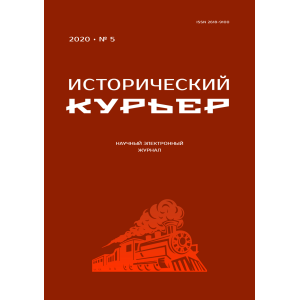 From the Editor
From the Editor
The thematic issue of the Journal includes articles dealing with problems of oral history in the light of formation and development of this scientific discipline, its place within the inter-disciplinary matrix of the humanities, the use of special methods and approaches of historical research, debates on the national and foreign experience, specifics of oral sources and creation of the research centers specializing in sources of this type.
Oral history is commonly understood as a research area or scientific discipline using its own method – an interview which helps to create a new historical source (document) based on the empirical experience and individual/social memory of participants or eyewitnesses of historical events or past life.
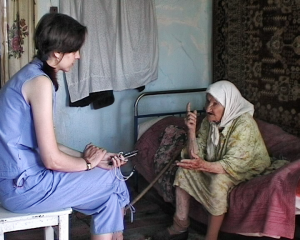 Methodology of Historical Research
Methodology of Historical Research
T.K. Shcheglova
Oral History in Russian Historiographic Space in the Years 1990–2010s: Challenges, Achievements and Risks
The article resumes on the basis of thirty years work in the sphere of oral history some results of its development in the sphere of theory as well as in the practical sphere taking into consideration field experience and historiography base.
Publishing: 30/10/2020
How to cite: Shcheglova T.K. Oral History in Russian Historiographic Space in the Years 1990–2010s: Challenges, Achievements and Risks // Historical Courier, 2020, No. 5 (13), pp. 8–22. [Available online:] http://istkurier.ru/data/2020/ISTKURIER-2020-5-01.pdf
 Methodology of Historical Research
Methodology of Historical Research
S.E. Yalovitsyna
The Experience of Expert Networking in Analyzing Biographical Interviews
The Interpretation of the same (or similar) text (interview, memoirs, etc.) by different experts may lead to different results. This situation leads to doubts about the scientific nature of the methods. But we have an opportunity to increase the efficiency of work by integrating individual solutions of experts into the intelligent Internet system.
Publishing: 30/10/2020
How to cite: Yalovitsyna S.E. The Experience of Expert Networking in Analyzing Biographical Interviews // Historical Courier, 2020, No. 5 (13), pp. 23–31. [Available online:] http://istkurier.ru/data/2020/ISTKURIER-2020-5-02.pdf
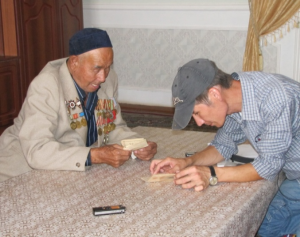 Methodology of Historical Research
Methodology of Historical Research
A.T. Sabirov
Oral History as a Method and Source in the Study of Local Communities (Mahalla). Uzbekistan’s Experience
This article reviews the experience of the Institute of History of the Academy of Sciences of Uzbekistan and a number of international organizations accredited in the country to conduct oral and historical research in Uzbekistan. According to the author, the experience of oral history in Uzbekistan is insufficient and is developing under the influence of the Russian historical science.
Publishing: 30/10/2020
How to cite: Sabirov A.T. Oral History as a Method and Source in the Study of Local Communities (Mahalla). Uzbekistan’s Experience // Historical Courier, 2020, No. 5 (13), pp. 32–42. [Available online:] http://istkurier.ru/data/2020/ISTKURIER-2020-5-03.pdf
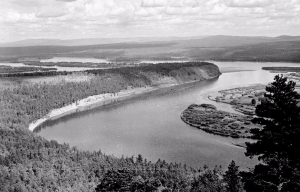 Crossroads of History
Crossroads of History
C. Campbell
Architectures of Encounter in the Post-Revolutionary Siberian North
This article offers a new direction for exploring the history of the Krasnoyarsk Territory. The autor introduces the term “architectures of encounter” to focus attention on the ways in which forces external to the Indigenous peoples of the Evenki Municipal Region actively designed the material and social infrastructures for cultural transformation, dispossession of land, and resource extraction.
Publishing: 30/10/2020
How to cite: Campbell C. Architectures of Encounter in the Post-Revolutionary Siberian North // Historical Courier, 2020, No. 5 (13), pp. 43–56. [Available online:] http://istkurier.ru/data/2020/ISTKURIER-2020-5-04.pdf
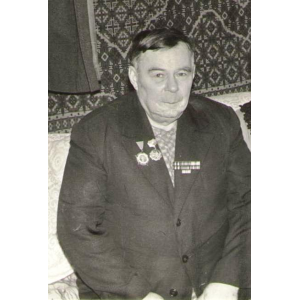 Crossroads of History
Crossroads of History
N.A. Potapova
“Had there been no Factory here, the City Would not have Become”: the Soviet Five-Year Plan, 1928–1932 in Iskitim and the First Workers of the Chernorechensky Cement Plant (Memoirs of P.R. Kolesnikov)
The memoirs of Petr Kolesnikov, a participant in the Great Patriotic War, a labor veteran, a worker of the Iskitim cement plant, are published. Kolesnikov left behind two diaries, one of which is devoted to the construction and establishment of a cement plant, and the second to the Great Patriotic War.
Publishing: 30/10/2020
How to cite: Potapova N.A. “Had there been no Factory here, the City Would not have Become”: the Soviet Five-Year Plan, 1928–1932 in Iskitim and the First Workers of the Chernorechensky Cement Plant (Memoirs of P.R. Kolesnikov) // Historical Courier, 2020, No. 5 (13), pp. 57–69. [Available online:] http://istkurier.ru/data/2020/ISTKURIER-2020-5-05.pdf
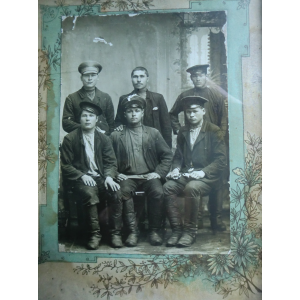 Crossroads of History
Crossroads of History
M.A. Ovcharova
Oral History Sources in the Study of Agricultural Migrations of the Mordvins and Formation of Settlements in the Eastern Part of Siberia in the 1930s–1940s
In the Soviet Union, much attention was paid to the planned migration policy from different regions, in which a wide variety of ethnic groups participated. Until recently, issues related to certain aspects of resettlement have not been fully studied. This is often due to a lack of a source base.
Publishing: 30/10/2020
How to cite: Ovcharova M.A. Oral History Sources in the Study of Agricultural Migrations of the Mordvins and Formation of Settlements in the Eastern Part of Siberia in the 1930s–1940s // Historical Courier, 2020, No. 5 (13), pp. 70–82. [Available online:] http://istkurier.ru/data/2020/ISTKURIER-2020-5-06.pdf
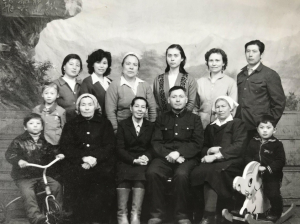 Crossroads of History
Crossroads of History
A.A. Zabiyako, Ruyan Zhang
Oral History of the Russian Habitants of Trekhrechye (Sanhe District): Memoirs vs Narrations Based on Photos
The article is based on memorats and narrations based on photos collected in Russian and Chinese during five international expeditions to the three rivers region (Hulunbuir dist., Inner Mongolia, China) in 2015–2019. Modern Russian-speaking people of Trekhrechye present a mixed-race population born in Russian-Chinese marriages (in the first, second, and today – the fifth generation).
Publishing: 30/10/2020
How to cite: Zabiyako A.A., Zhang Ruyan. Oral History of the Russian Habitants of Trekhrechye (Sanhe District): Memoirs vs Narrations Based on Photos // Historical Courier, 2020, No. 5 (13), pp. 83–97. [Available online:] http://istkurier.ru/data/2020/ISTKURIER-2020-5-07.pdf
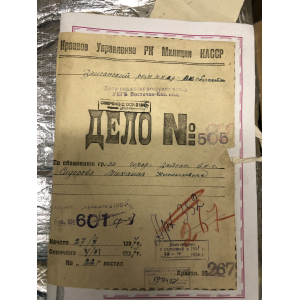 Family Memory of Repression
Family Memory of Repression
А.S. Zhanbosinova, К.R. Zhirindinova, S.S. Zhandybaeva
The Oral Microhistory of the “Great Terror” (Based on Materials from Archival Investigations of the Repressed)
The authors consider the oral microhistory of political repression based on the analysis of archival and investigative materials. A unique set of sources, most of which are introduced into scientific circulation for the first time, reflect the repressed everyday life of Soviet people.
Publishing: 30/10/2020
How to cite: Zhanbosinova А.S., Zhirindinova К.R., Zhandybaeva S.S. The Oral Microhistory of the “Great Terror” (Based on Materials from Archival Investigations of the Repressed) // Historical Courier, 2020, No. 5 (13), pp. 98–108. [Available online:] http://istkurier.ru/data/2020/ISTKURIER-2020-5-08.pdf
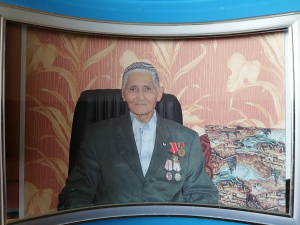 Family Memory of Repression
Family Memory of Repression
K.N. Baltabayeva
The Fate of the Repressed Kazakh Family from Oyrotiya
The article shows the consequences for the descendants of a large Kazakh family of psychological trauma resulting from forced collectivization and political repression. The article analyzes the memoirs of a famous public figure of the Kazakh community in the Republic of Altai of the Russian Federation, economist, historian Pioner Sultanovich Mukhtasyrov (27.02.1937), whose family in the 1930-ies suffered from political repression. P.S. Mukhtasyrov is grandson of Mukhtasyr Dalembayev, the son of Sultan Mukhtasyrov and the brother of Kusan Mukhtasyrov groundlessly repressed as “enemies of the people”.
Publishing: 30/10/2020
How to cite: Baltabayeva K.N. The Fate of the Repressed Kazakh Family from Oyrotiya // Historical Courier, 2020, No. 5 (13), pp. 109–122. [Available online:] http://istkurier.ru/data/2020/ISTKURIER-2020-5-09.pdf
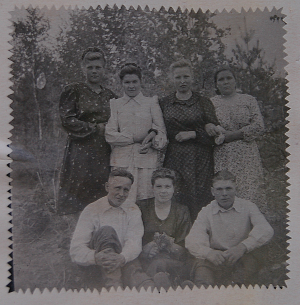 Family Memory of Repression
Family Memory of Repression
N.N. Ablazhey, L.M. Salakhova
Forced Neighbourhood: Ethnic Deportees in the Memory of Inhabitants of the Baikal Region
The paper is devoted to the study of the features of the historical memory of ethnic deportees in the territory of the Baikal region. Regional society of resettlers, represented by the descendants of exiles, convicts and voluntary settlers of the 19th – early 20th century, in the 1930 – 1950s became a host society for the deported.
Publishing: 30/10/2020
How to cite: Ablazhey N.N., Salakhova L.M. Forced Neighbourhood: Ethnic Deportees in the Memory of Inhabitants of the Baikal Region // Historical Courier, 2020, No. 5 (13), pp. 123–131. [Available online:] http://istkurier.ru/data/2020/ISTKURIER-2020-5-10.pdf
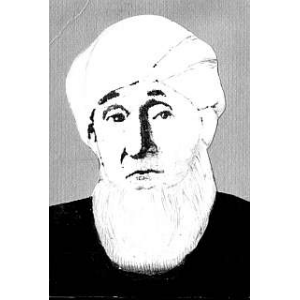 Family Memory of Repression
Family Memory of Repression
A.T. Saytov
Oral History as a Way of Studying the History of Repression against the Clergy in Karakalpakstan
The article is devoted to the problems of the history of Karakalpakstan, namely, it addresses the issues of repression and persecution against the clergy based on oral history methods. A biographical approach to the study of this issue allows us to re-evaluate the impact of current events in society on the turning points of family life and how it affected people’s lives.
Publishing: 30/10/2020
How to cite: Saytov A.T. Oral History as a Way of Studying the History of Repression against the Clergy in Karakalpakstan // Historical Courier, 2020, No. 5 (13), pp. 132–143. [Available online:] http://istkurier.ru/data/2020/ISTKURIER-2020-5-11.pdf
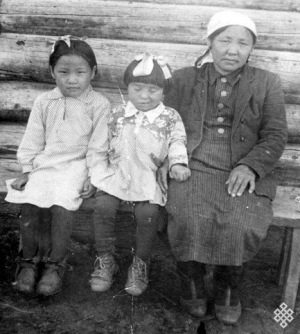 Family Memory of Repression
Family Memory of Repression
E.E. Khabunova
Oral Stories of Kalmyks as Family Value: Conservation and Transmission
Expeditions conducted in the territory of the Republic of Kalmykia (during the years of 2012–2017) allowed us to record oral narratives in many families. Those narratives recount the deportation of 1943, the destiny of Buddhist monks, religious buildings, sacred places, family relics etc.
Publishing: 30/10/2020
How to cite: Khabunova E.E. Oral Stories of Kalmyks as Family Value: Conservation and Transmission // Historical Courier, 2020, No. 5 (13), pp. 144–149. [Available online:] http://istkurier.ru/data/2020/ISTKURIER-2020-5-12.pdf
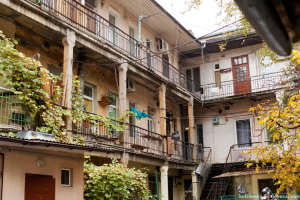 Oral History of the War
Oral History of the War
S.N. Ushakova
Relationships Between Jewish and Non-Jewish Neighbors in Odesa Before the War in Video Testimonies of Holocaust Survivors
This article is based on oral history video interviews of the Holocaust survivors from the city of Odesa collected by the University of Southern California (USC) Shoah Foundation. The study shows the potential of oral history to reconstruct and analyze Jewish-non-Jewish relationships in Odesa in the 1920–1930s at the micro level and particularly at the level of neighbor relations.
Publishing: 30/10/2020
How to cite: Ushakova S.N. Relationships Between Jewish and Non-Jewish Neighbors in Odesa Before the War in Video Testimonies of Holocaust Survivors // Historical Courier, 2020, No. 5 (13), pp. 120–161. [Available online:] http://istkurier.ru/data/2020/ISTKURIER-2020-5-13.pdf
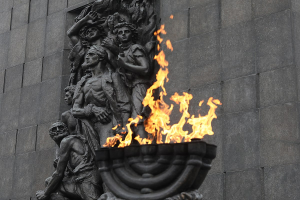 Oral History of the War
Oral History of the War
I.V. Rebrova
General Characteristics and Features of International Oral History Projects on the Holocaust in the USSR (the Case of the North Caucasus)
The article’s main purpose is to identify and systematise all existing international Oral History projects with Soviet Jews who survived the Holocaust. The narrators are Holocaust survivors who could overlive the mass killing of Jews during the Nazi occupation. Since most of the interviews have been conducted with the former “children of war”, the article focuses on the analysis of the peculiarities of remembering practices in the childhood and its subsequent (self) reflection by the narrators on their war time experience under the influence of Soviet propaganda and state ideology.
Publishing: 30/10/2020
How to cite: Rebrova I.V. General Characteristics and Features of International Oral History Projects on the Holocaust in the USSR (the Case of the North Caucasus) // Historical Courier, 2020, No. 5 (13), pp. 162–175. [Available online:] http://istkurier.ru/data/2020/ISTKURIER-2020-5-14.pdf
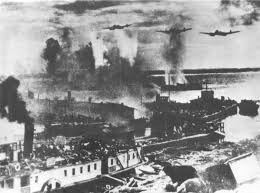 Oral History of the War
Oral History of the War
L.A. Bondarenko
Evacuation of Civilians from Stalingrad: Based on Oral History
The theme of evacuation of the population from Stalingrad is still one of the most difficult and painful for people who survived the battle of Stalingrad. The article attempts to consider how the evacuation of the population of Stalingrad was reflected in the oral history, how it relates to the data of science, what guided the people who made the decision to leave or stay in the warring city.
Publishing: 30/10/2020
How to cite: Bondarenko L.A. Evacuation of Civilians from Stalingrad: Based on Oral History // Historical Courier, 2020, No. 5 (13), pp. 176–186. [Available online:] http://istkurier.ru/data/2020/ISTKURIER-2020-5-15.pdf
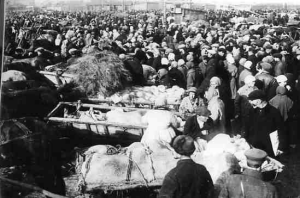 Oral History of the War
Oral History of the War
A.V. Rykov
Peasant Trade in the Peripheral Regions of the Altai Territory in Neighboring Regions as an Adaptation Practice During the Great Patriotic War (Based on Oral History)
This article is intended to consider the trade of peasants in the peripheral regions of the Altai Territory in neighboring regions as an adaptative practice in wartime conditions. Considering the problem from this angle, the author in the article identifies both specific local features of trade and their causality, and traces specific trade practices characteristic of the peasantry as a whole.
Publishing: 30/10/2020
How to cite: Rykov A.V. Peasant Trade in the Peripheral Regions of the Altai Territory in Neighboring Regions as an Adaptation Practice During the Great Patriotic War (Based on Oral History) // Historical Courier, 2020, No. 5 (13), pp. 187–195. [Available online:] http://istkurier.ru/data/2020/ISTKURIER-2020-5-16.pdf
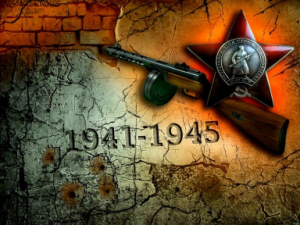 Oral History of the War
Oral History of the War
E.F. Krinko
Oral History of the Great Patriotic War: Institutionalization and Research Results in the South of Russia
The article deals with the formation of the oral history of the Great Patriotic War as a area research in the South of Russia. The chronological framework of the article covers the period from the war years to our time. The Commission on the History of the Great Patriotic War of the Academy of Sciences of the USSR conducted the first polls in the South of the RSFSR directly during the war years.
Publishing: 30/10/2020
How to cite: Krinko E.F. Oral History of the Great Patriotic War: Institutionalization and Research Results in the South of Russia // Historical Courier, 2020, No. 5 (13), pp. 196–215. [Available online:] http://istkurier.ru/data/2020/ISTKURIER-2020-5-17.pdf
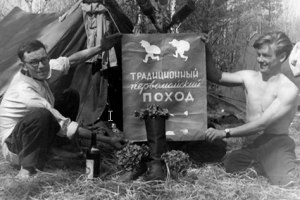 Memory of the Era of Socialism
Memory of the Era of Socialism
D.I. Murenko
Opportunities of Oral History in the Study of Formation of the Komsomol Organization of the Novosibirsk Academgorodok (1958–1960)
The article is devoted to the use of oral history methods in the study of the local history of Akademgorodok. Based on the example of several interviews, the socio-psychological environment in which the Komsomol organization of the scientific center was formed was reconstructed. The article shows the institutionalization of the Komsomol structures – the Soviet District Committee of the Komsomol and the Komsomol Committee of the Siberian Branch of the Academy of Sciences.
Publishing: 30/10/2020
How to cite: Murenko D.I. Opportunities of Oral History in the Study of Formation of the Komsomol Organization of the Novosibirsk Academgorodok (1958–1960) // Historical Courier, 2020, No. 5 (13), pp. 216–227. [Available online:] http://istkurier.ru/data/2020/ISTKURIER-2020-5-18.pdf
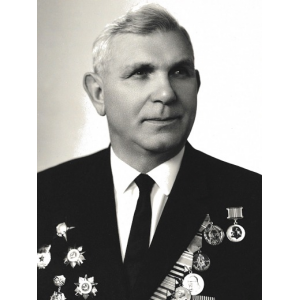 Memory of the Era of Socialism
Memory of the Era of Socialism
A.I. Savin
Deficits of Brezhnev’s Decorations Industry (1964–1982)
The article explores the topic of decoration industry as a main instrument of extra economic coercion to labor in the USSR during the reign of L. Brezhnev. Basing on the documents of the Presidium of the Supreme Soviet Decorations department, most of which are introduced into scientific circulation for the first time, the article focuses on the mechanism of mass decorations, as well as specific “decoration policy” meant to correct the deficiency of moral stimulants. First, this meant devaluation of different orders and medals, resulted from the mass decorations.
Publishing: 30/10/2020
How to cite: Savin A.I. Deficits of Brezhnev’s Decorations Industry (1964–1982) // Historical Courier, 2020, No. 5 (13), pp. 228–237. [Available online:] http://istkurier.ru/data/2020/ISTKURIER-2020-5-19.pdf
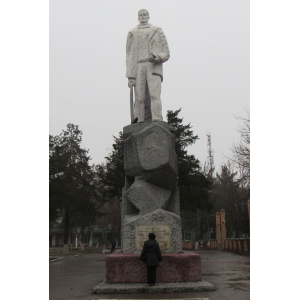 Memory of the Era of Socialism
Memory of the Era of Socialism
Y.N. Tsyryapkina
Attitudes Towards the Socialism Era in Post-Soviet Uzbekistan: a Study of Historical Memory
The article explores the question of how the “era of socialism” is reflected in the historical memory of the population of post-Soviet Uzbekistan based on the recollections of old-timers in the city of Angren, Tashkent region. The main approaches to examining the Soviet past and the politics of memory in Russia, where the “era of socialism” is presented in the Russian public consciousness as a cultural and historical heritage were fixed in the article.
Publishing: 30/10/2020
How to cite: Tsyryapkina Y.N. Attitudes Towards the Socialism Era in Post-Soviet Uzbekistan: a Study of Historical Memory // Historical Courier, 2020, No. 5 (13), pp. 238–248. [Available online:] http://istkurier.ru/data/2020/ISTKURIER-2020-5-20.pdf
![“That’s how I had to Experience Everything”. – Book Review: Shcherbakov A., Kozlova A., Ostrovskaya I. Na serdtse pali vse pechali. Sudby krestyan v XX veke. Vospominaniya [All the Sorrows Fell on My Heart. The Fate of the Peasants in the 20th Century. Memories]. Moscow: Agey Tomesh Publishing House, 2019. 432 p., ill. “That’s how I had to Experience Everything”. – Book Review: Shcherbakov A., Kozlova A., Ostrovskaya I. Na serdtse pali vse pechali. Sudby krestyan v XX veke. Vospominaniya [All the Sorrows Fell on My Heart. The Fate of the Peasants in the 20th Century. Memories]. Moscow: Agey Tomesh Publishing House, 2019. 432 p., ill.](/en/../images/Data/2020-05/2020-5-21z.png) World of Books
World of Books
A.A. Kozhaeva
“That’s how I had to Experience Everything”. – Book Review: Shcherbakov A., Kozlova A., Ostrovskaya I. Na serdtse pali vse pechali. Sudby krestyan v XX veke. Vospominaniya [All the Sorrows Fell on My Heart. The Fate of the Peasants in the 20th Century. Memories]. Moscow: Agey Tomesh Publishing House, 2019. 432 p., ill.
In 2019, the international historical and educational, charitable and human rights society “Memorial” published a collection of peasant memoirs, including three ego-documents, the authors of which E.K. Makarova, N.I. Skrylev and A.I. Ponomarev, who were born in the early 19th century, describe various, including tragic aspects of their life, which fell on the first half of the century.
Publishing: 30/10/2020
How to cite: Kozhaeva A.A. “That’s how I had to Experience Everything”. – Book Review: Shcherbakov A., Kozlova A., Ostrovskaya I. Na serdtse pali vse pechali. Sudby krestyan v XX veke. Vospominaniya [All the Sorrows Fell on My Heart. The Fate of the Peasants in the 20th Century. Memories]. Moscow: Agey Tomesh Publishing House, 2019. 432 p., ill. // Historical Courier, 2020, No. 5 (13), pp. 249–256. [Available online:] http://istkurier.ru/data/2020/ISTKURIER-2020-5-21.pdf
 Scientific Life
Scientific Life
To the 120th Anniversary of the Birth of Academician M.A. Lavrentiev



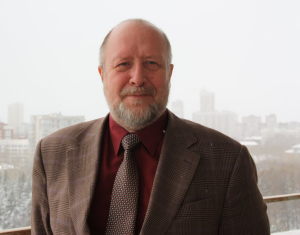 Scientific Life
Scientific Life